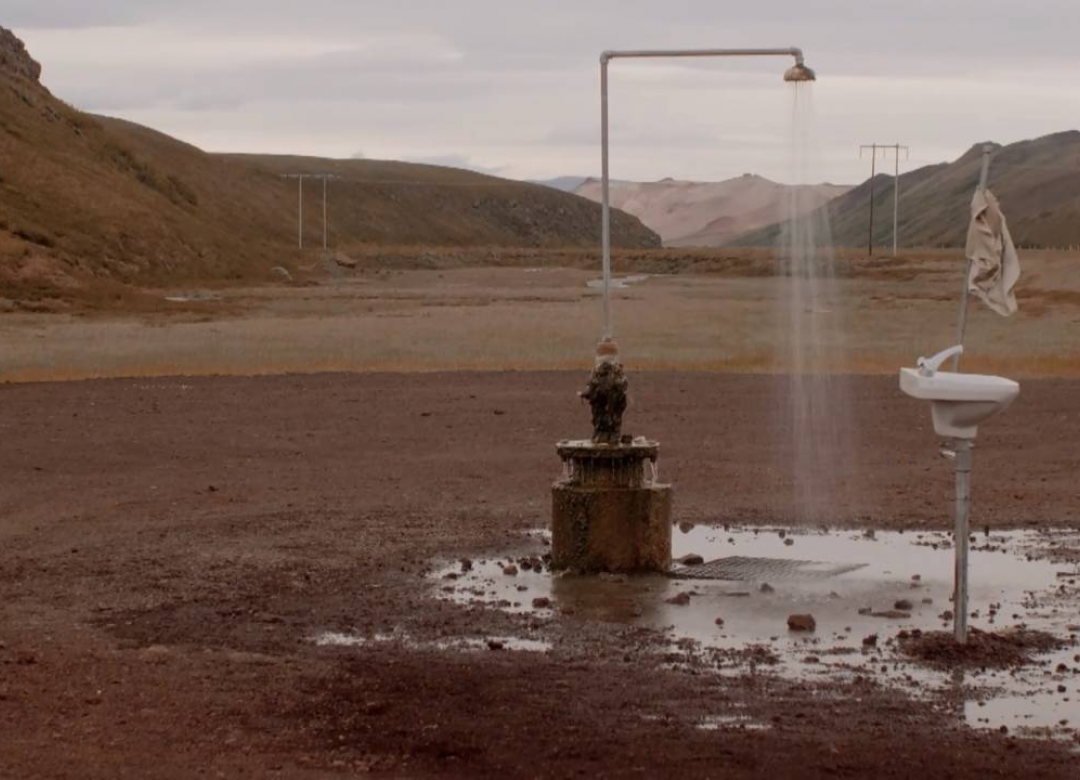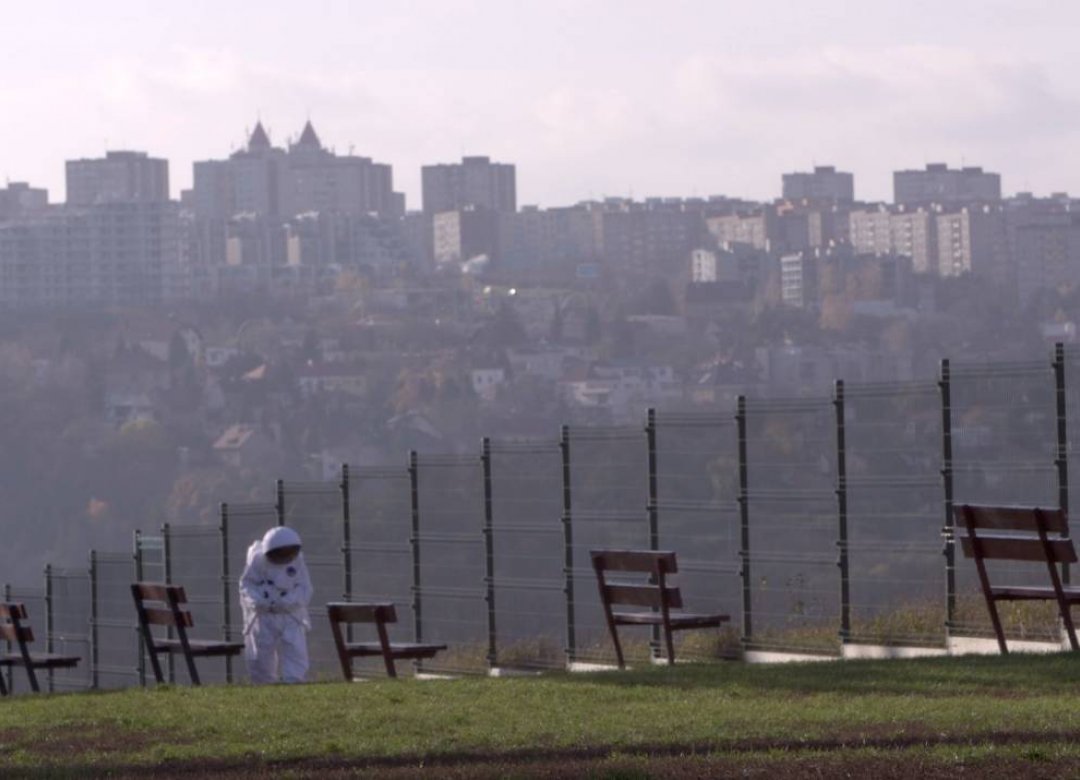Co-produced by ARTE and Czech TV, Ticket to the Moon revisits the Cold War space race. In addition to a TV cut, the first-time director Veronika Janatková also made a festival version of the film. In this interview, she talks about, among other things, the challenges facing TV documentaries on the festival circuit.
Do you feel that your film fits into the Czech documentary landscape?
I’ve been wondering about that as well because I’ve lived abroad for fifteen years and I came back to the Czech Republic just three and a half months ago. In Ticket to the Moon, my grandfather represents the Czech context; I talk about Czech society and history only as far as it applies to his life and experience.
The film comes in multiple versions.
You’ve seen the longer cut, which I wanted to make because it matched my creative vision better than the version made for ARTE. It isn’t just about the additional footage, either. It is about the overall message. In the shorter version, I focus more on the international aspects of the issue, which makes perfect sense in terms of a European TV network. The longer version focuses more on my grandfather and on Czechoslovakia. We didn’t make the shorter cut just to make the subject more accessible to an international audience. Apart from the Czech Republic, it is almost impossible to find a programming slot for feature documentaries. Most networks pay attention to every single minute and we simply had to fit in under an hour.
 Why did you decide to work with ARTE?
Why did you decide to work with ARTE?
It seemed like a natural fit because I’ve lived in Germany. Our other co-producer is Czech TV. The difference is that while with the money from ARTE you can actually make a film, the amount from Czech TV would definitely not have been enough. Without ARTE, we would’ve had to secure a lot more funders but we didn’t have much time left. We had to plan it so that the film is released before the moon landing anniversary. Documentary filmmakers usually take a long time trying to get funding and they start shooting once they’ve secured enough money. For us, it was “now or never”.
What’s it like to work with ARTE compared to Czech TV? For example, as far as their effort to influence the outcome.
I’ve made good experience with Czech TV – they don’t try to get too involved. With ARTE, you face the rigid programming slots that can’t be argued with. But otherwise, ARTE delivers on its reputation as a prestige network.
Did ARTE provide a generous budget? Your film involved a lot of travel and I can imagine it wasn’t cheap.
Not at all. We had a sufficient budget to shoot the film but it wasn’t “generous” by any means. For instance, we wouldn’t have managed without some help from my friends in Iceland who handled the entire shoot there.
Everything was dictated by the pace of the project. Although I’d thought about it long before that, even attended the 2013 Archidoc, the decision to shoot the film was made a year before the Apollo 11 anniversary. Suddenly, we had a deadline and the entire organization of the project had to be adjusted accordingly. I’m happy with the final result but I can’t deny that the film would’ve been different given more money and time.
I’m glad I had the opportunity to go back to the editing room following the broadcast premiere and make “my own” festival cut with a new editor – Jorge Sanchez who’s a friend of mine. Making the first one was really hectic.
The end credits list a lot of foreign names. How did you put together your crew?
Almost all of them are “my people”. I was able to put together my own team so, naturally, I picked professionals I’ve known or worked with. Any compromise involving the crew was again because of the project’s fast pace. Not everybody can immediately join a new project and travel a lot.
Why did you choose this story?
Five or six years ago, my grandfather mentioned he had a ticket to the Moon. I hadn’t heard about anything like it so I just thought it was funny. But the more I thought about it, the more interesting it felt; it seemed like a really interesting story that could reveal a lot about the past and the present.
I often ask documentary filmmakers whether they feel a greater responsibility to their protagonists or to their movie. It might be too easy for you because you worked with your grandfather. But is there an ethical problem? What if you found out your grandfather did something reprehensible during communism and he wanted to keep it a secret?
It’d certainly be a tough conflict but luckily, I didn’t find myself in a situation where I’d have to handle a clear-cut issue like that. I must say that if it came to it, I’d probably honor the request to leave it out. It isn’t purely out of concern for the family – we actually found out about something unflattering one of our protagonists did during communism but in the end, we respected his request not to mention it. I would hope that our decision doesn’t fundamentally affect our ability to offer a compelling reflection of the past. It’s important to me as a filmmaker that my film be as accurate and persuasive as possible but I still feel responsibility to my protagonists as well. I don’t believe that a single sentence in a movie is worth ruining someone’s reputation over.
Is there a clear line you won’t cross on what to include or what to leave out?
There is no universal rule. I decide on a case-by-case basis and based on my relationship to the protagonist, whether a particular bit of information is necessary for the film and whether it’s worth the damage it may cause. In general, life around me is more important than a movie. It’s good to keep in mind that I’m not the one who has to bear the consequence of the revelation.
I was a producer for the documentary film God Is Not Working on Sunday, Eh! that followed feminist movements in Rwanda 20 years after the genocide. Because of the political situation, we had to be extremely careful about what to show. You can’t base your decision on the assumption that telling all of the stories might make for a “juicier” film. We had to think of our protagonists and their lives.
 TV documentaries usually have trouble when it comes to festival distribution. You have a festival cut now so this is probably something you’ve been working on.
TV documentaries usually have trouble when it comes to festival distribution. You have a festival cut now so this is probably something you’ve been working on.
Major festivals will only screen documentary premieres, which is very limiting. They don’t really care that the new cut is radically different from the broadcast version. I know we can’t enter the most prestigious events. But I’ll be happy for any other festivals that will screen our movie. We might just be in for a surprise. I’m grateful that we’ve been included in the East Silver Caravan selection and I’m hoping it will help to increase our visibility and our chance to appear in some festival lineups. We also have a distributor in Germany.
Was ARTE really so indispensable? It put you in a time bind, you had to make a TV cut and you also couldn’t enter a number of festivals... That doesn’t at all sound ideal...
It’s my first documentary feature as a director and you really have to be able to seize the moment. When ARTE said they were interested in the project, I was aware from the very beginning that it would be a really difficult task. Based on ARTE’s reputation and reliability, I decided that it would definitely be worth it. Also, it seemed like it was possibly the only chance to make this film. Could it ever be funded without the Apollo 11 anniversary? I didn’t want to take that risk. I’m sorry about the difficult situation surrounding festivals but there are other venues. I believe we have a compelling story that can draw viewers even outside festivals. For example, we’d like to reach out to planetariums that could screen our film in their unique space.
What was the biggest challenge?
Ultimately, it was a creative problem – how to tie my grandfather’s personal story into “big history”? How to connect Czechoslovakia with a broader global context within the space of 70 or 50 minutes? How to reach people from environments as diverse as the United States and Eastern Europe?
How did you manage to find all the protagonists?
It wasn’t easy. We were able to access only the archives of the now shutdown Pan Am airlines. Most people moved away and there were often no contact details listed. I also found out that people in that age group don’t find it very easy to relive the past, which is something I’d hoped they would find easier. Just look at my grandfather and his blunt way of speaking. I’d imagined his would be a nostalgic journey to the past but as it turns out, senior citizens usually don’t think that way. Just like they don’t think about the future much because they no longer feel like they’re a part of it.
Ticket to the Moon is represented by Rise and Shine World Sales.
The film will be screened at Světozor Cinema in Prague on July 22 (8:30 pm) as part of the Documentary Monday.